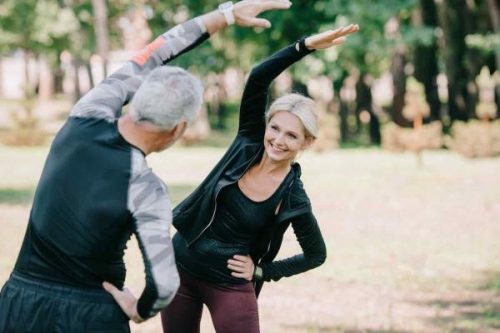The thought of losing control of your mind is terrifying at any age. Here's how movement and exercise can delay or even prevent the onset of Alzheimer's and dementia - and why it's simpler than we think.

Port Louis, Mauritius - November 9, 2021 /PressCable/ —
A slightly fading memory – forgetting a few names, where the keys were last – is not uncommon as you grow older, but dementia and Alzheimer’s are so much more than that. While there is currently no cure or drug to stop or slow down Alzheimer’s or dementia, the positive news is that there is an effective course of action to delay the impacts. Research around the cognitive benefits of exercise grows more compelling each year.
“Of all the lifestyle changes that have been studied, taking regular physical exercise appears to be one of the best things that you can do to reduce your risk of getting dementia,” says the UK Alzheimer’s society.
The benefits are of exercise and movement are significant; the Alzheimer’s Research & Prevention Foundation found it can halve the risk for developing Alzheimer’s and deliver increased improvement in memory and cognitive abilities in women between the ages of 40 and 60.
The science behind exercise as a preventative measure is impressive.
“Exercise is like a super-charged 401K for your brain, only better, because of its immediate, long-lasting and protective effects on the brain,” says New York University neuroscientist Dr Wendy Suzuki, who is currently researching the effect of physical activity on your brain. “The research shows that as we age, it is imperative to stay in motion and exercise to maintain cognitive function.”
Whether one is 40, 50, 60 or 70, the possibility or current reality of declining memory is a terrifying though, so this is an important finding. Most people think of exercise as hitting the gym or running miles every day, but that’s not necessary to benefit from its anti-aging properties (there’s no issue, however, with running marathons). As little as 15 minutes a day of integrated movement can offer as much, if not more benefit than traditional exercise. The important thing is to keep the body in motion.
“We need to be able to move through life without the fear that as we age, both our bodies and our brains will inevitably fail us. A certain level of decline in both body and mind is natural, but we should embrace the fact that there are simple actions we can take and habits we can build to ensure that we can be active, confident and ready for whatever life throws at us,” says Liz Grantham, founder of TheOptimal.me – a lifestyle, health and fitness platform for midlifers.
In research fielded by TheOptimal.me, two of the top blockers to starting exercise in midlife was fear of injury and the inconvenience of traditional exercise in the throes of daily life. Grantham and her team created Integrated Movement Routines (IMRs) © to make it simpler and easier to integrate movement into the busiest of lifestyles. They focus on working all your muscles and joints together, as they are made up of movement patterns that mimic how we move naturally in life – rather than the isolated movement of traditional exercise. The outcome is that in as little as 15 minutes a day, you can significantly improve your alignment, flexibility, mobility, and balance, and of course, keep your brain active and sharp.
Is exercise a cure-all?
“Exercise is not going to cure Alzheimer’s or dementia but it anatomically strengthens two of the key targets of both diseases, the hippocampus and the prefrontal cortex,” Dr Suzuki adds. “Your hippocampus will be bigger if you exercise regularly, so that means that it’s going to take that much longer for the plaques and tangles of Alzheimer’s disease to cause behavioural effects. That means months, or hopefully years, of higher cognitive function.”
Experts agree that it’s never too late to start moving and improving your cognitive function. And programs like TheOptimal.me could be just the solution for those who find it difficult to fit exercise into their lives and for those who dread the thought of a gym or running or even just the word ‘exercise’.
“We understand that individual needs are unique; not everyone is already active, some of us are just overwhelmed by what to do or how to get started. To help solve these dilemmas our online classes are created to get your body in full motion, whether you’re a couch potato or consider yourself an athlete. Shorter, longer, easier, more challenging. Our mission is to get everyone moving their bodies without fear or limitations – especially as we get older,” says Grantham.
And, of course, there are other significant benefits to moving and exercise in addition to better brain health – stronger muscles, bones, cardiovascular strength, improved respiratory function and more – all of which will will kick in nearly immediately.
**TheOptimal.me offers a 30-day free trial which includes a free 21-day movement course to help build mobility and strength, and get into the habit of moving.
Contact Info:
Name: TheOptimal.me Team
Email: Send Email
Organization: TheOptimal.me
Address: 6th Floor, Dias Pier Building Le Caudan Waterfront, Caudan, Port Louis 11307, Mauritius
Website: https://theoptimal.me/
Source: PressCable
Release ID: 89051986













